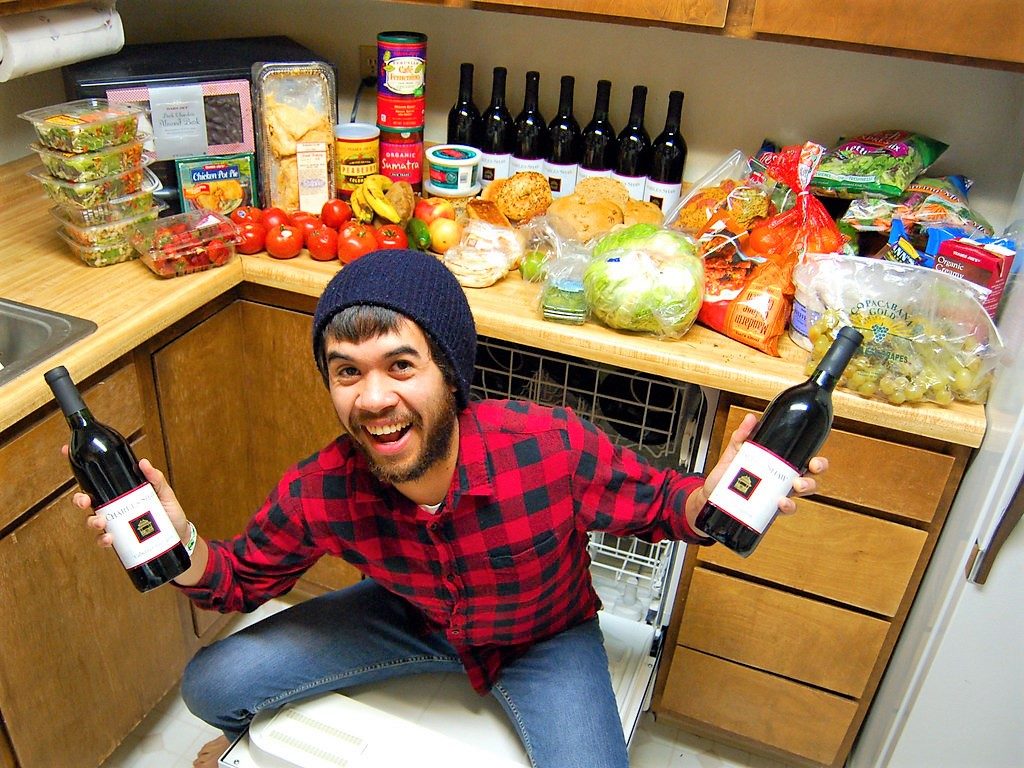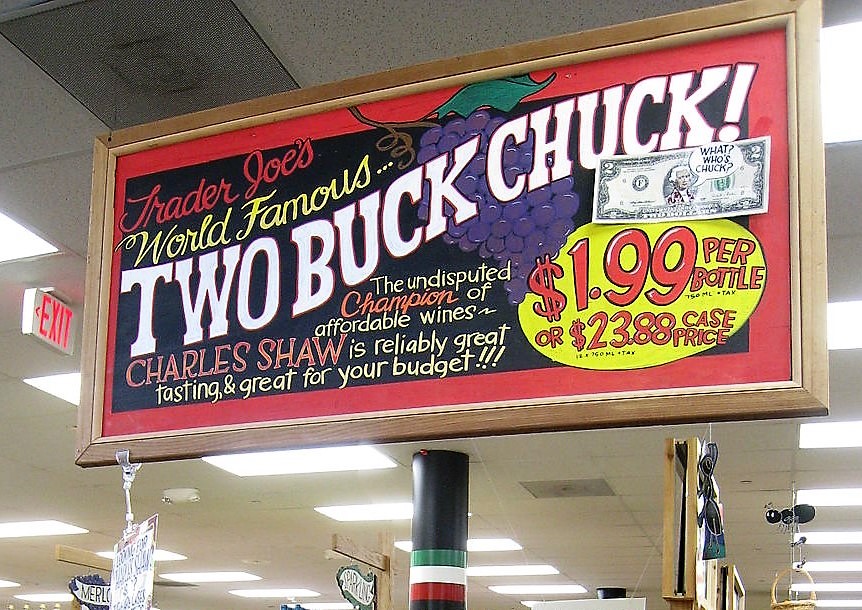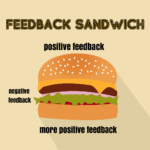By Yvonne Milosevic
Trader Joe’s has sold over a billion bottles of its Charles Shaw private label wine since hitting the shelves in 2002. Known affectionately as “Two Buck Chuck,” the wine is smooth on the palate and even easier on the wallet. TJs customers cart away cases of the stuff—it’s literally cheaper than some water brands. If you graduated from college in the last decade or so, you probably know the low-cost libation replaced beer kegs at parties across the country in the aughts.

While you may have ample experience imbibing the brand, you may not realize there’s a real person behind the label. Charles Shaw, a grad of West Point and Stanford GSB, became keen on wineries during a small-business and venture class at Stanford. He wanted to start in the wine business upon graduating. But, as his wife Lucy pointed out, Charles had no money for such pursuits. She suggested he take his degree and go work for a bank instead.
At some point, the bank transferred Shaw for a position in France. While there, he fell head over heels with the Beaujolais-style wines that were all the rage. Eventually, he decided to leave the corporate world behind and dive into the venture he felt truly passionate about. Charles and Lucy moved back to the States, and in the late 1970s, started in the Napa wine business.
The Charles Shaw Winery, launched with money from Lucy and her family, produced some terrific, award-winning wines from its earliest days, and enjoyed considerable success for nearly 20 years. Unfortunately, a series of miscalculations, a production disaster, a pestilence, and a messy divorce caused the whole operation to go up in flames in 1991. Bankruptcy was the only solution.
Zero Buck Chuck
Four years later, a court-appointed trustee sold the Charles Shaw Winery brand, label, and name for $27K to Fred Franzia, owner of Bronco Wine Company. Shaw didn’t receive a penny from the sale. Franzia would go on to re-brand and sell the once chic label as an “everyman’s juice” in an exclusive deal with Trader Joe’s.

When the bottles first hit the shelves, Shaw admits he wasn’t a fan, calling the Two Buck Chuck wines and the use of his name, “embarrassing and demeaning.” But over the years, his perspective has mellowed considerably, much as a fine wine does.
In a recent conversation with his alma mater, Shaw shared three lessons he’s learned from the failures of his namesake winery.
Lesson #1: Fight against rigid thinking
“My timing was terrific in terms of getting in there at the right time, but in the premium wine business, like in haute couture and perfume, it’s all about demand,” Shaw explains. He had become so enamored of Beaujolais that he went all-in on a varietal unknown to most Americans.
“What I should have done was throw things against the wall to see what would stick rather than just defining myself as a Beaujolais producer. I gambled on that niche. I wanted to be the light-red guy,” he continues.
“But I should have made a chardonnay, a merlot, a sauvignon blanc, for example, and put them out there in small quantities, then watched to see if there was a demand pull. And when there was, I should have turned and run in that direction. That would have been so easy to do.”
Lesson #2: Be collaborative
When asked what he might do differently if he had the chance, Shaw says he would be more collaborative. His wife Lucy didn’t drink, nor did she even like to talk about wine. Some might say that makes for a doomed partnership in the wine business. “If you have partners, it’s really a good idea to have them buy-in. I was collaborative with the industry people, our other partners, but neglected the most important partner of all: my business partner and partner in marriage,” he says.
Lesson #3: Watch your expenses
Shaw advises entrepreneurs trying to get a small business off the ground to watch their expenses. “I know I paid all my employees on the high end for businesses in Napa Valley,” he admits. “We had a Cadillac health plan. But in a small business, you have to examine yourself to see if you’re tough enough. I know my competitors were.”
Still sanguine despite it all
Shaw spends his days running a database company out of Chicago, but he hasn’t given up on his vintner dreams. He made two vintages of rieslings at a leased winery in Michigan. At a world riesling championship in Australia, the wines took second and third place.
“We got beat by a German outfit that’s 700 years old. But financing is difficult, and I’ve been obstinate about not having partners and trying to do it on my own,” he admits. “So, we haven’t done very well.”
Regardless of the setbacks and failures, Shaw says he continues to learn from his experience. He also gets a kick out of the fact that college students adore Two Buck Chuck. His Stanford class reunion invited him to speak about resiliency and his journey toward retirement, with all its highs, lows, twists, and stumbles.
“That gave me the chance to look at all the things I went through, and I really enjoyed it,” Shaw says. “I used to be upset about Fred Franzia and Joe Coulombe [MBA ’54 and founder of Trader Joe’s]. But not anymore. I got a note from Joe last Christmas, from some fancy hotel in Florence. He’d sold Trader Joe’s to Aldi, the German guys, back in the ’70s, and he told me how many millions of cases of Charles Shaw wine they sold last year. I look at it this way: He’s out of it. I’m out of it. But Joe and Fred saved the brand, and the brand survives today.”


